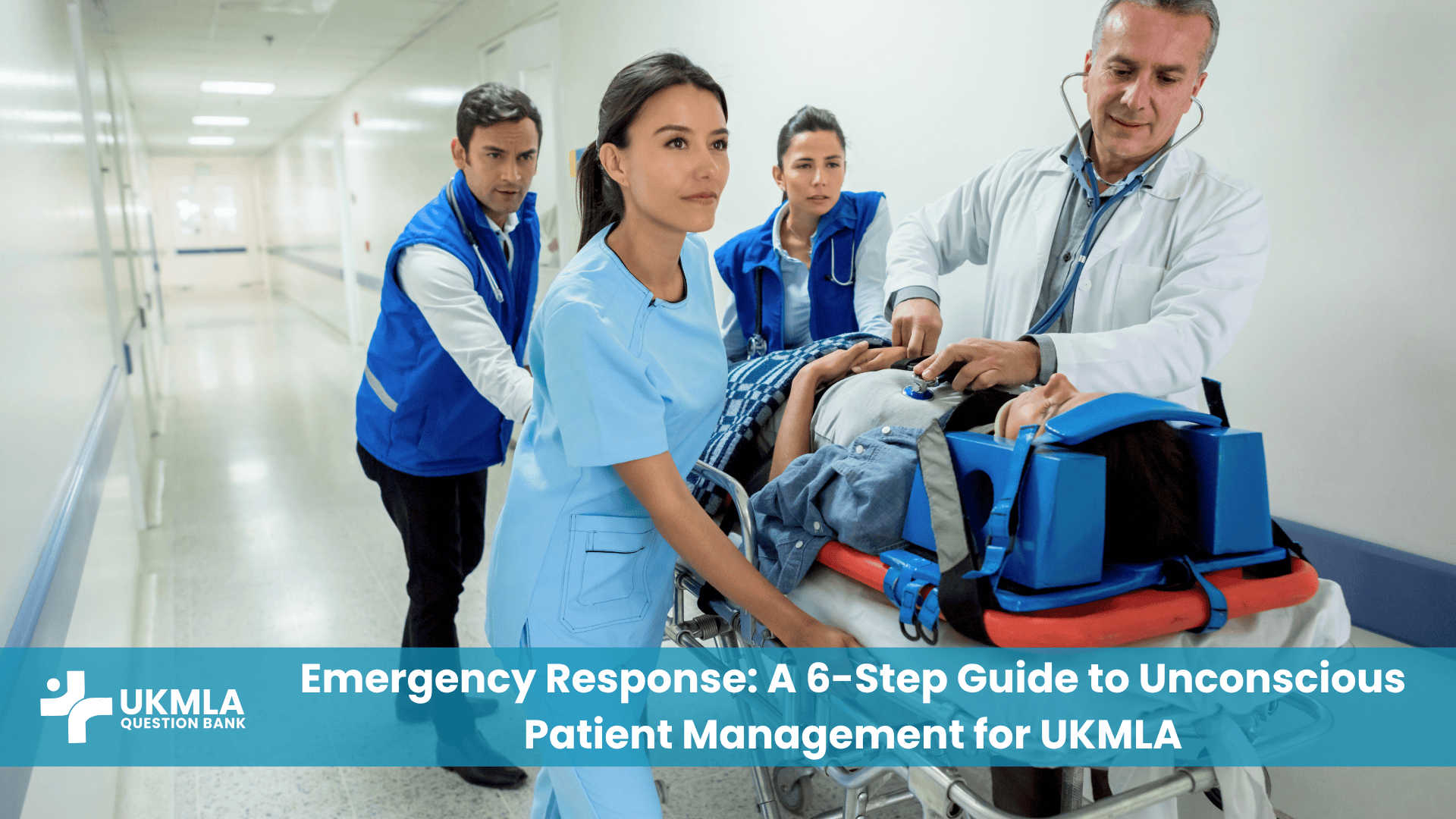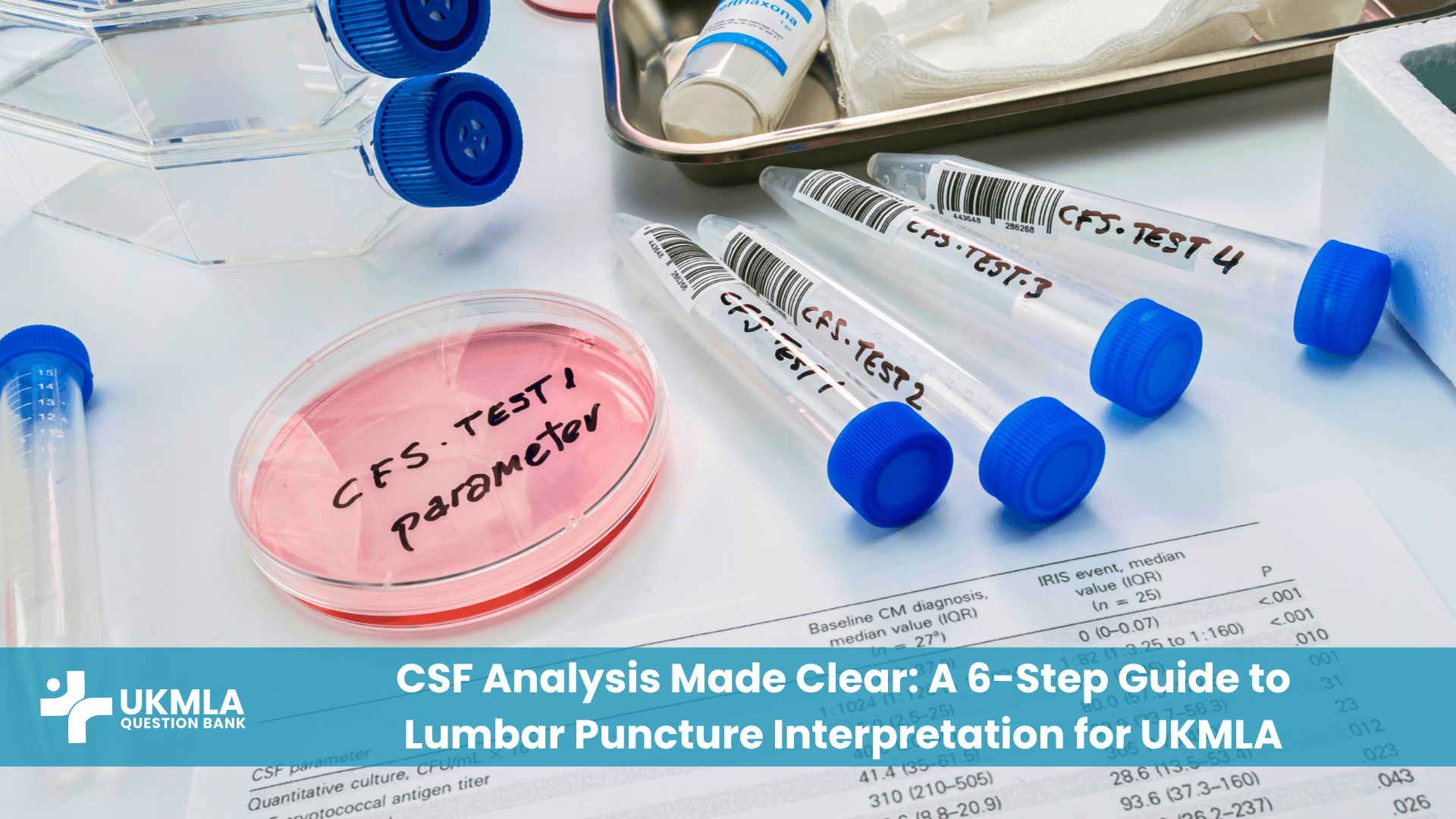The UK Medical Licensing Assessment (UKMLA) is a significant development in UK medical regulation, and like any major change, it has been surrounded by its fair share of myths and misunderstandings. For UK medical students and International Medical Graduates (IMGs) preparing for this crucial exam, separating fact from fiction is essential for effective preparation and managing expectations. Believing in these UKMLA misconceptions can lead to unnecessary anxiety, misguided study strategies, and a skewed understanding of what the assessment truly entails.
This comprehensive guide aims to tackle some of the most prevalent UKMLA misconceptions head-on. By debunking these myths with clear explanations and referencing official information, we hope to provide you with a more accurate perspective, allowing you to approach your UKMLA journey with clarity and confidence.
Myth 1: The UKMLA is Designed to Make it Harder for IMGs to Practise in the UK.
The Reality: This is one of the most persistent UKMLA misconceptions. The General Medical Council (GMC) has consistently stated that the primary aim of the UKMLA is to establish a common threshold for safe practice for all doctors, regardless of whether they trained in the UK or overseas. The goal is standardization and fairness, not to create undue barriers for IMGs.
Standard Setting: The level of the UKMLA is designed to be equivalent to the standard expected of a doctor at the point of completing Foundation Year 1 (F1) in the UK. This was similar to the aim of the PLAB test it replaces for IMGs. For more details on the GMC’s motivations, see our article, “[Why the UKMLA Was Introduced: Understanding the GMC’s Aims]”.
Level Playing Field: By having UK graduates also take the UKMLA (integrated into their finals), it ensures that all new entrants to the UK medical register have met the same benchmark.
Focus on Competence: The UKMLA assesses core knowledge, skills, and professional behaviours essential for safe practice in the UK healthcare system. Our guide, “[UKMLA for International Medical Graduates (IMGs): A Step-by-Step Guide],” outlines the pathway.
Myth 2: The UKMLA is Just a Rebranded PLAB Test with No Real Changes.
The Reality: While the UKMLA builds upon the experience of the PLAB system and shares structural similarities (e.g., a knowledge test and a clinical skills assessment), it’s more than just a rebranding.
Universal Application: The most significant change is its application to all doctors seeking licensure, including UK medical graduates. This universality is a core principle.
Alignment with MLA Content Map: Both the Applied Knowledge Test (AKT) and the Clinical and Professional Skills Assessment (CPSA) are meticulously mapped to the GMC’s MLA Content Map. This blueprint ensures the assessment reflects current UK practice and the Outcomes for graduates. For more, read “[The GMC UKMLA Content Map: Your Blueprint for Success]”.
Evolving Standards: The UKMLA framework allows for continuous review and updates to ensure it remains relevant to contemporary medical practice. For a comparison, see “[Is UKMLA Different from PLAB? A Comprehensive Look at the Evolution of GMC Registration]” from our existing blog posts.
Myth 3: You Only Need to Focus on Passing the AKT; the CPSA is Easier.
The Reality: This is a dangerous UKMLA misconception. Both the AKT and the CPSA are integral components of the UKMLA, and you must pass both to gain GMC registration.
Different Skill Sets: The AKT assesses applied knowledge, while the CPSA evaluates practical clinical skills, communication, and professionalism. They test different but equally crucial aspects of medical competence.
Rigorous Assessment: The CPSA, being an OSCE-style exam, requires significant preparation, including hands-on practice, role-playing communication scenarios, and understanding UK ethical and professional standards.
Equal Importance: Underestimating the CPSA can lead to failure. Both components demand dedicated and distinct preparation strategies. Our guide, “[Decoding the UKMLA: Structure, Format, and Scoring Explained],” details both parts.
Myth 4: A High UKMLA Score Will Give You an Advantage in Foundation Programme or Specialty Training Applications.
The Reality: Currently, the UKMLA is primarily a pass/fail assessment for the purpose of medical licensure.
No Ranking for UKFP: For the UK Foundation Programme (UKFP) allocation, the UKMLA result (pass/fail) is a requirement for eligibility, but the actual score is not typically used for ranking candidates under the Preference Informed Allocation (PIA) system.
Specialty Training Focus: For specialty training applications later in your career, other factors like your performance during the Foundation Programme, postgraduate exams (e.g., MRCP/MRCS), research, audits, teaching experience, and interview skills are generally more significant than your UKMLA pass itself.
Focus on Competence: The key role of UKMLA is to ensure you meet the threshold for safe practice, not to create a detailed ranking system for future applications.
Myth 5: You Can Pass the UKMLA by Just Memorizing Facts from Question Banks.
The Reality: While question banks (like those at ukmlaquestionbank.com) are invaluable preparation tools, relying solely on memorization is insufficient.
Application of Knowledge: The UKMLA, particularly the AKT, emphasizes the application of knowledge to clinical scenarios, not just rote recall. You need to understand concepts deeply.
Clinical Reasoning: Many questions require you to interpret information, formulate differential diagnoses, and make clinical decisions.
CPSA Skills: The CPSA directly tests practical and communication skills, which cannot be mastered through memorization alone.
Balanced Approach: Effective preparation involves using question banks for practice and identifying weak areas, alongside in-depth study from textbooks, guidelines, and active learning methods. Refer to “[How to Use a UKMLA Question Bank Effectively]” on our blog for more.
Myth 6: The UKMLA Syllabus (Content Map) is Too Vast to Cover.
The Reality: The MLA Content Map is indeed comprehensive, reflecting the breadth of knowledge and skills required for a newly qualified doctor. However, it is not insurmountable.
Blueprint, Not Textbook: The Content Map guides what can be assessed. It’s not a list of every fact to memorize.
Focus on Core Competencies: It prioritizes common and important conditions and presentations relevant to early postgraduate practice.
Strategic Study: Effective study planning, using the Content Map to structure revision, and focusing on high-yield areas can make preparation manageable. Our guide “[Creating the Perfect UKMLA Study Plan: A 3-Month Template]” can help.
Progressive Learning: For UK students, this content is covered progressively throughout their medical degree. IMGs need a structured approach to cover it systematically.
Myth 7: IMGs are at a Significant Disadvantage Because the Exam is “UK-Centric.”
The Reality: The UKMLA assesses the standard required to practise in the UK. Therefore, familiarity with UK clinical guidelines (e.g., NICE), ethical principles, and the NHS context is essential.
Bridging the Gap: This is a challenge IMGs need to address through targeted preparation, but it’s not an insurmountable disadvantage. Many resources cater specifically to helping IMGs understand these UK-specific aspects.
Universal Medical Principles: Core medical knowledge and clinical skills are largely universal. The UKMLA builds on this foundation.
Success of IMGs: Many IMGs successfully pass UK licensing exams (previously PLAB, now UKMLA) every year by preparing diligently for these specific requirements.
Myth 8: There’s a Fixed Percentage of People Who Pass/Fail Each UKMLA Sitting.
The Reality: The UKMLA is criterion-referenced, not norm-referenced.
Standard-Based: This means the pass mark is set based on a pre-defined standard of competence, not on the performance of the cohort of candidates sitting the exam.
No Quotas: The number of candidates who pass or fail is determined by how many meet this standard, not by a fixed percentage or quota. Pass rates can vary, but the underlying standard remains consistent.
Myth 9: You Don’t Need to Worry About the “Professional Knowledge” Domain if Your Clinical Knowledge is Strong.
The Reality: The “Areas of Professional Knowledge” domain in the MLA Content Map (covering ethics, law, patient safety, professionalism) is critically important for both AKT and CPSA.
Integrated Assessment: These aspects are often integrated into clinical scenarios. You might face an AKT question with an ethical dilemma or a CPSA station where professional conduct is key.
GMC Emphasis: The GMC places very high importance on professionalism and ethical practice. Neglecting this domain is a significant risk.
Myth 10: Once I Pass UKMLA, getting a Job in the NHS is Automatic.
The Reality: Passing the UKMLA and obtaining GMC registration makes you eligible to work as a doctor in the UK. However, securing a job is a separate, competitive process.
Application Process: You will need to apply for jobs (e.g., within the UK Foundation Programme if eligible, or other non-training or training posts).
Other Factors: Your CV, interview skills, references, and sometimes additional experience or qualifications will play a role in securing employment.
Understanding the System: Familiarity with the NHS job application process is important. Our article “[Timeline for UKMLA: From Registration to Receiving Your Results]” will touch upon post-exam steps.
Frequently Asked Questions (FAQs) About Common UKMLA Misconceptions
No, this is a common misconception. The UKMLA is for all doctors wishing to gain a licence to practise in the UK, including UK medical graduates (for whom it’s integrated into their finals) and IMGs.
No. The UKMLA, guided by the MLA Content Map, focuses on the core knowledge, skills, and common/important presentations relevant to a doctor at the beginning of their career in the UK (typically F1 level).
While your experience is valuable, the UKMLA assesses foundational knowledge and skills relevant to UK general practice at an entry level. You will still need to prepare specifically for its format, content (including UK guidelines/ethics), and the style of questions/stations.
Not necessarily for the AKT, as there are many online resources and international test centers. For the CPSA, while preparation can be done remotely, many IMGs find it beneficial to attend UK-based courses or practice sessions closer to the exam date. The CPSA itself must be taken in the UK.
No. UKMLA questions, like those in most professional medical exams, are designed to assess understanding and application of knowledge, not to trick candidates. However, they can be challenging and require careful reading and critical thinking.
Generally, no. A Master’s degree or PhD, unless it’s a specific GMC-approved specialist registration pathway (like CESR for established specialists), does not typically exempt you from the UKMLA if you require general medical registration.
No, the exact pass marks are determined after each exam administration through a standard-setting process. They are not pre-published as a fixed percentage.
This is a misconception. While communication and interpersonal skills are crucial in the CPSA (often involving simulated patients), your underlying clinical knowledge, diagnostic skills, examination technique, and ability to formulate a safe management plan are equally vital.
Teaching experience can enhance your own understanding of subjects, which is beneficial. However, the UKMLA directly assesses your clinical knowledge application and practical skills as a practitioner, which requires specific preparation.
For the UKMLA, your primary focus must be on current UK clinical guidelines (e.g., NICE, SIGN), ethical frameworks set by the GMC, and UK law. While core medical principles are universal, the UKMLA assesses your ability to practice within the UK context.
Conclusion: Approach UKMLA with Facts, Not Fear
Navigating the UKMLA journey is challenging enough without the added burden of UKMLA common misconceptions. By understanding the true aims, structure, and expectations of this assessment, you can focus your energy on effective, evidence-based preparation. The UKMLA is designed to be a fair and robust test of your readiness for safe UK medical practice. Arm yourself with accurate information, prepare diligently, and you will be well-positioned to succeed.
Always refer to the official GMC website for the most current and authoritative information regarding the UKMLA.




